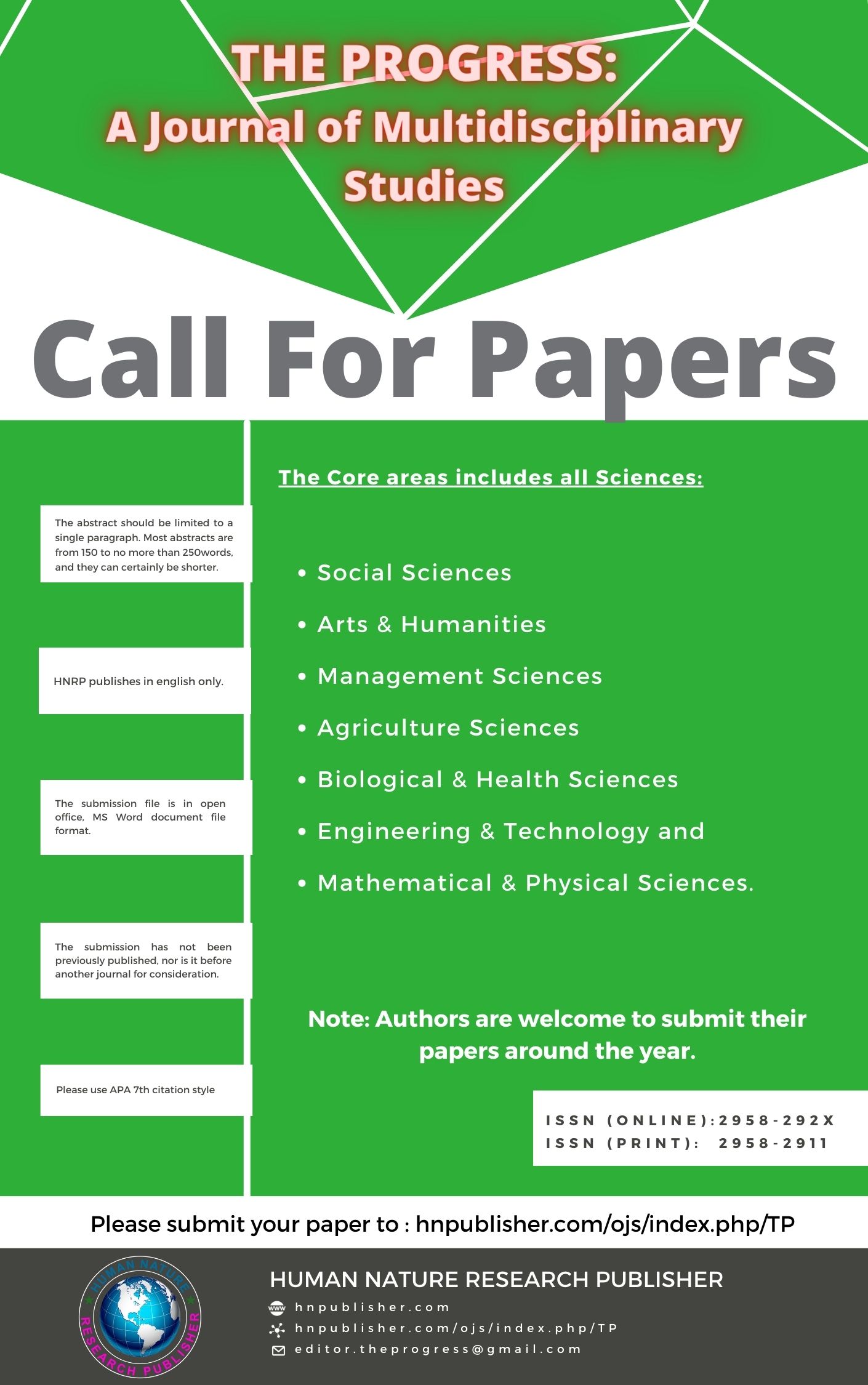Christie Watson’s Tiny Sunbirds Far Away: The Dynamics of Environmental Exploitation and Ecocriticism
DOI:
https://doi.org/10.71016/tp/pepnh497Keywords:
Ecocriticism, Environmental Degradation, Christie Watson, NigeriaAbstract
Aim of the Study: Environmental degradation and pollution has been a dominant motif in Niger-Delta narratives. This is apparently due to the myriad of problems facing the region as a result of the activities of oil companies exploring the crude oil in the region. Research works on the narratives from the region have however not adequately addressed the relationship between fate and environment. This study therefore examines fate and environment in Christie Watson’s Tiny Sunbirds Far Away with a view to bringing out the nexus of fate and environment and how the characters have responded to the challenges of their environment.
Methodology: This research uses Eco-criticism as the theoretical framework. Eco-criticism deals with the trends of nature in literary works. The concern of eco-critics is the place of literature in the face of climatic change and environmental problems. Watson’s Tiny Sunbirds Far Away is purposively selected because it explores the environment of the Niger-Delta towards bringing out ecological problems facing the people and the environment. The text is subjected to critical analysis.
Findings: The findings showed that the expatriates and the government reap the profits, while the people whose daily life is characterised by poverty are left disillusioned. Watson’s Tiny Sunbirds Far Away drives home the view of a first-hand experience of the Niger-Delta situation by bringing the protagonist home from Lagos and further analyses the Niger-Delta situation by revealing the effect of oil exploration as leading to unrest and militancy in the region. The expatriates exploring crude oil in the region are immune to the environmental hardship the people suffer as they live in affluence and serene environment devoid of pollution all within the same region. All these combine to make the region very restive.
Conclusion: The study concluded that without prejudice to the concept of fatalism which has characterised the narratives from the Niger-Delta region, the narrative reveals that the survival and existence of the people is a product of their continuous interaction with their environment.
Downloads
Published
Issue
Section
License
Copyright (c) 2023 Adekunle Adegite (Author)

This work is licensed under a Creative Commons Attribution-NonCommercial 4.0 International License.








